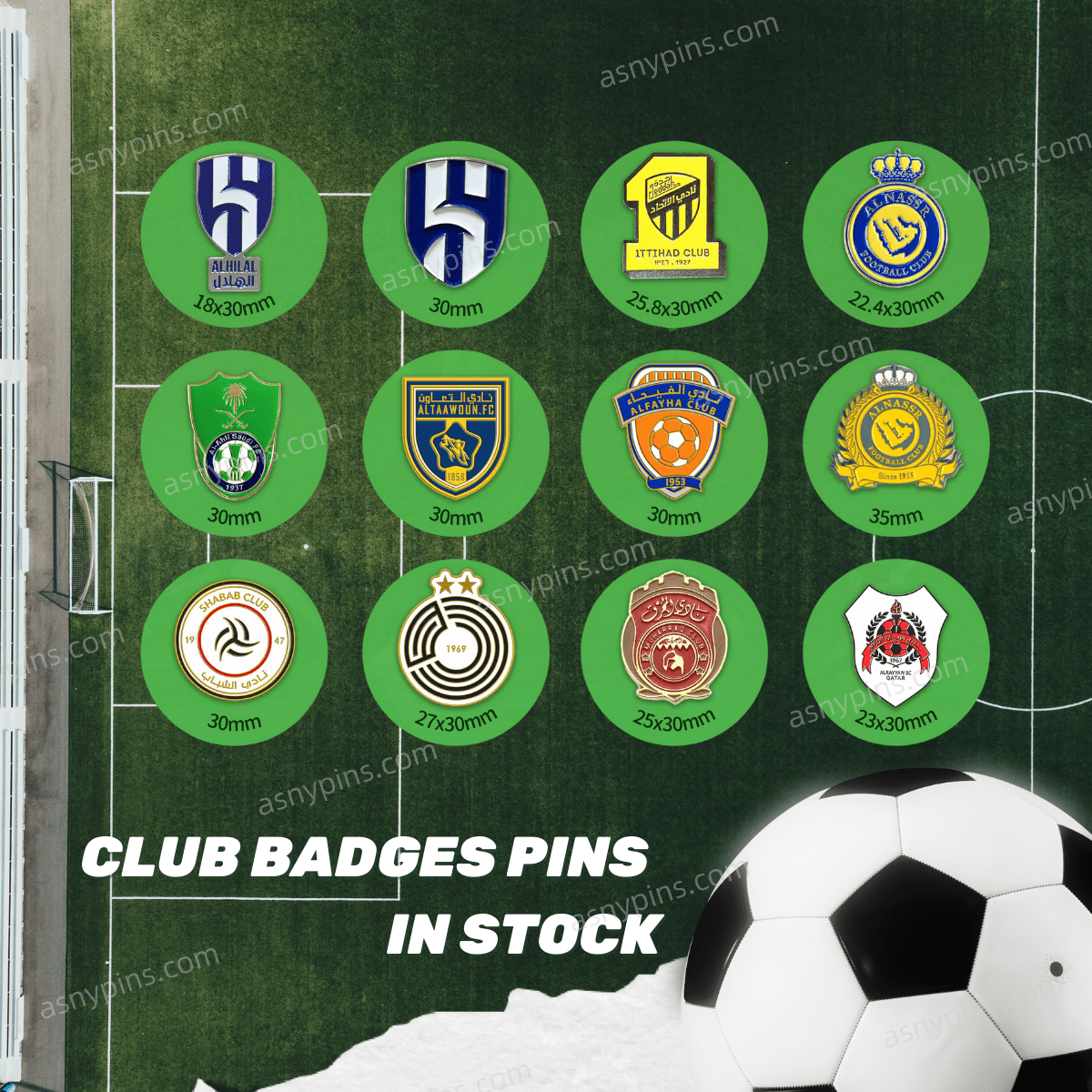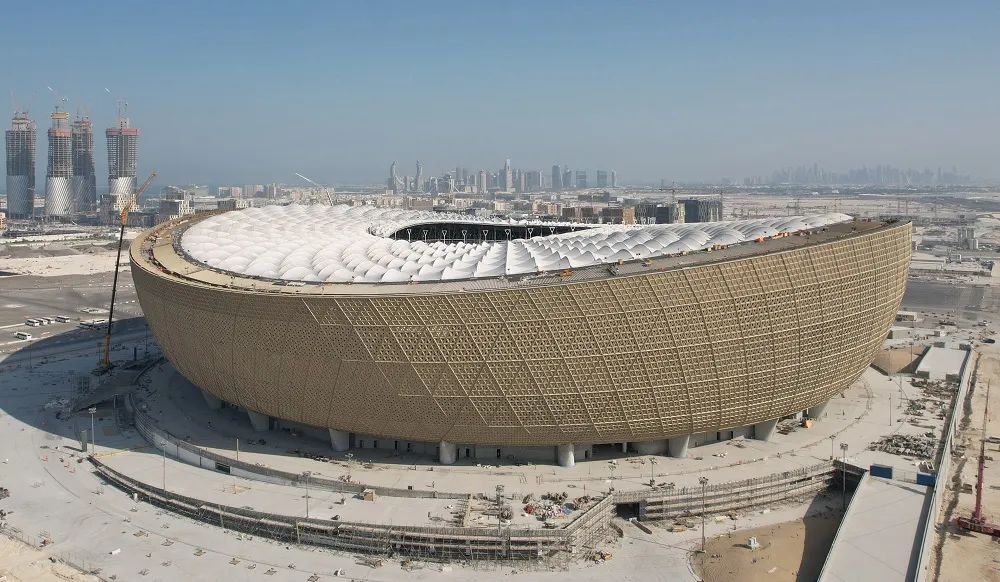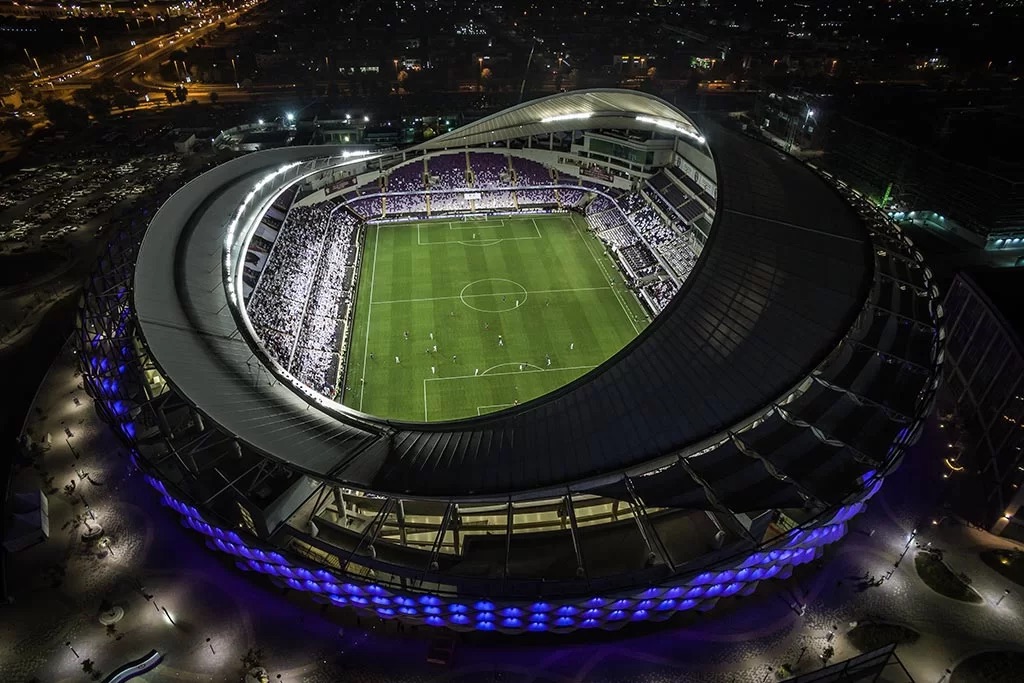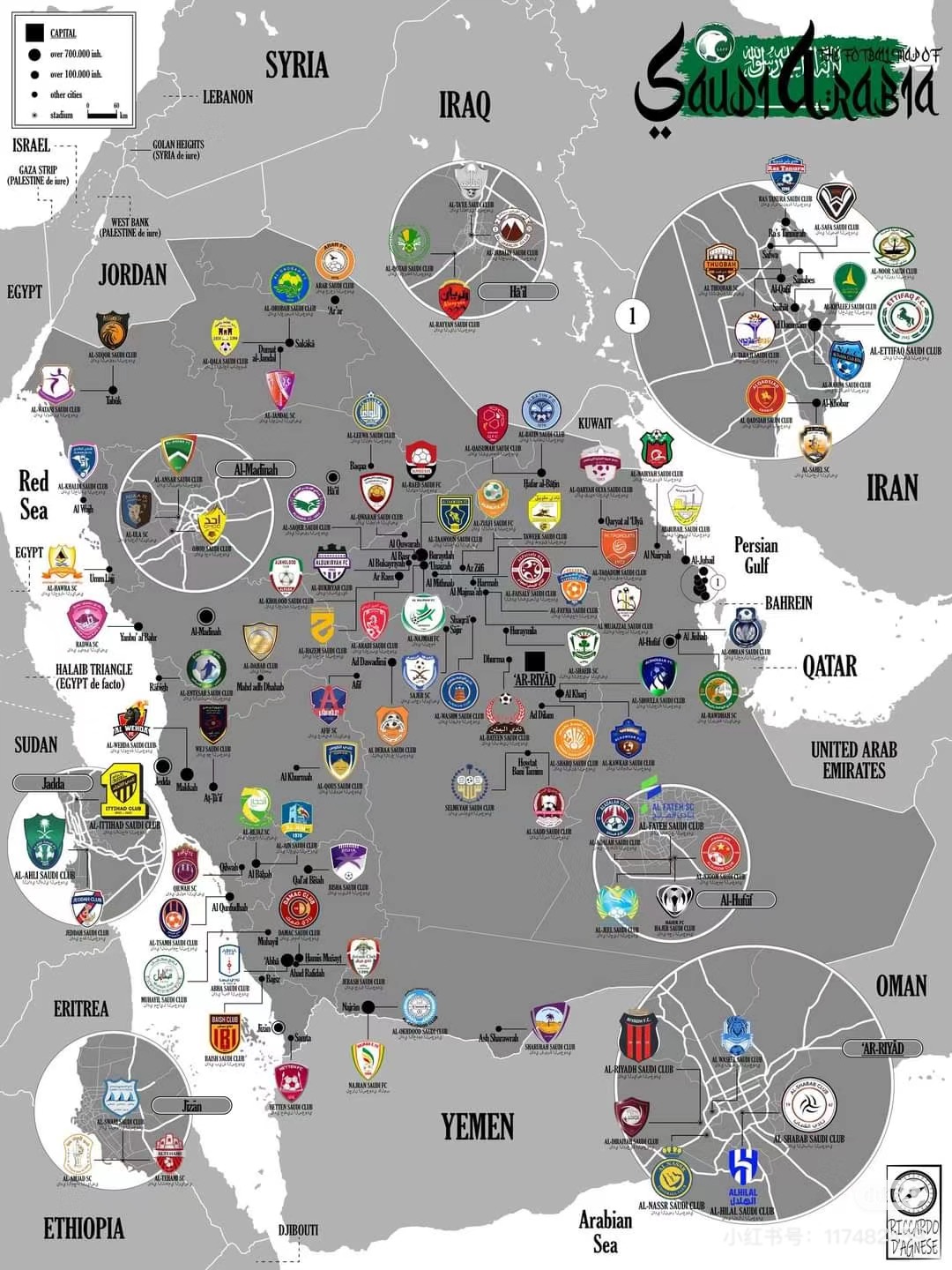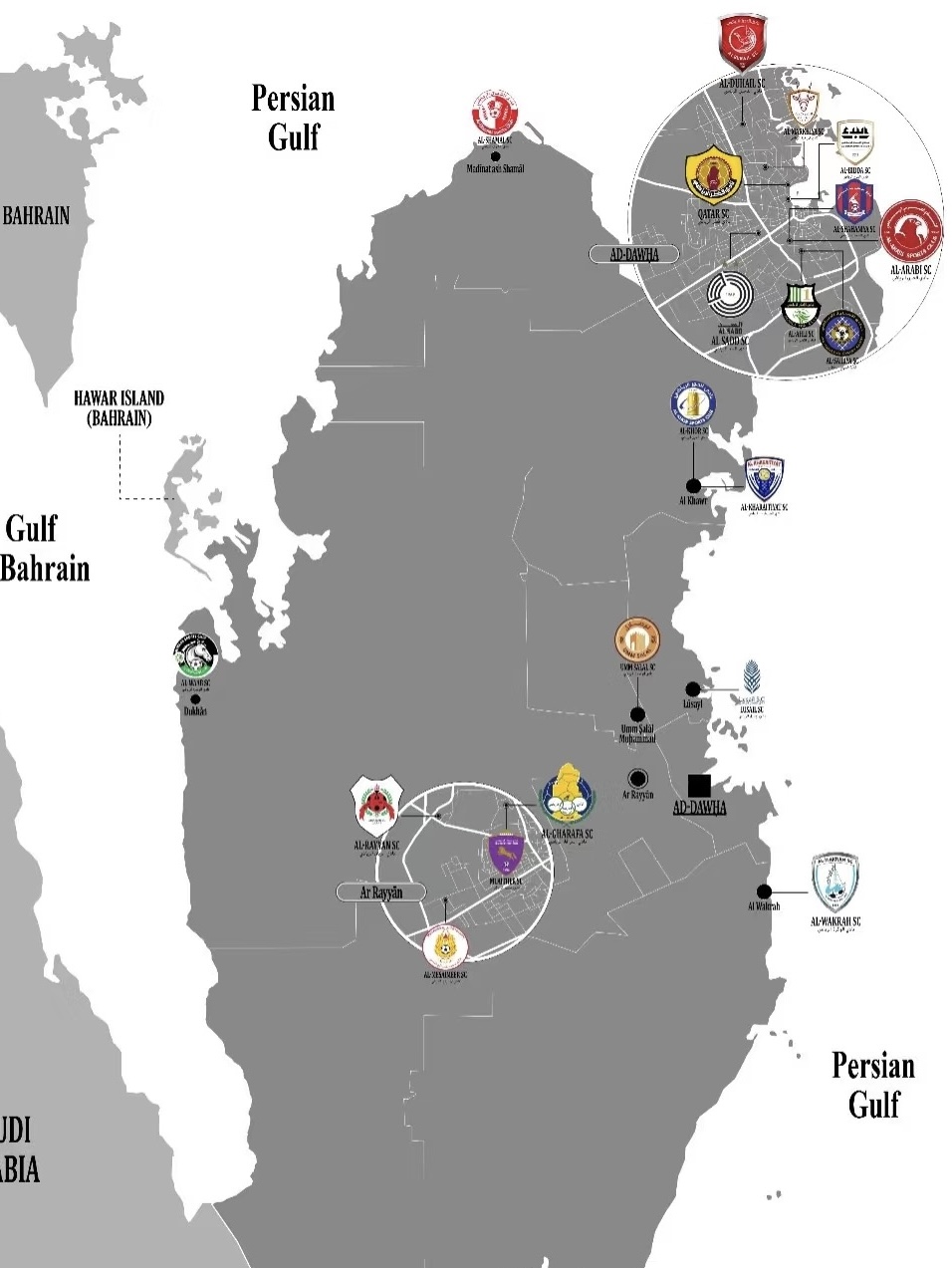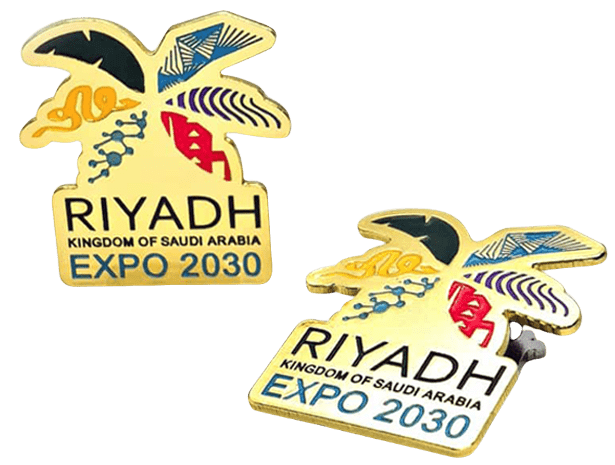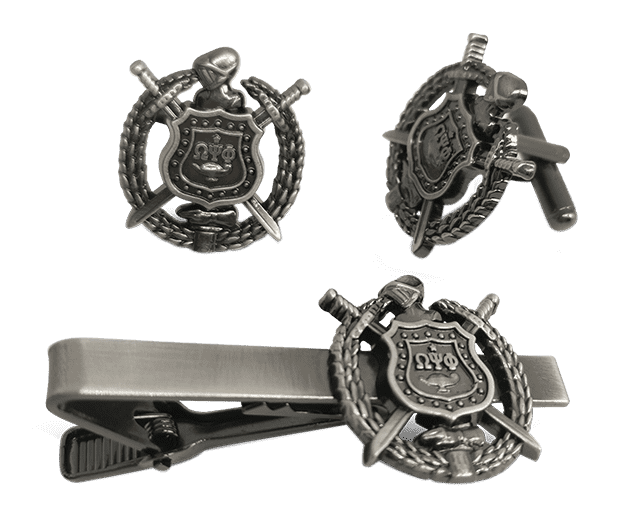Introduction
The AFC Champions League Elite (ACL Elite) represents the highest level of club competition in Asia. Starting from the 2024-2025 season, the tournament has been restructured with higher competitive standards, stricter participation criteria, and the adoption of the Swiss system, further integrating Asian football with the global stage. Middle Eastern clubs, particularly those from Saudi Arabia, the UAE, and Qatar, have demonstrated increasing dominance in the AFC Champions League and international competitions, positioning themselves as the core force of Asian football.
This article will provide an objective analysis of the AFC Champions League Elite’s tournament structure, participation criteria, and its connection with the FIFA Club World Cup. Additionally, we will explore the rise of Middle Eastern football, the key factors behind its success, and supporting evidence. As a professional badge manufacturer, ASNY Craft Factory is also honored to showcase custom badges, lapel pins, and commemorative souvenirs for Saudi, UAE, and other Middle Eastern clubs, introducing their production techniques and wholesale supply options.
AFC Champions League Elite Format Analysis
1. Pre-AFC Champions League: Domestic Leagues & Qualification Rounds
Entry into the AFC Champions League Elite is determined by clubs’ performances in their respective domestic leagues and cup competitions. The AFC allocates participation slots based on the overall strength of each country’s league, with higher-ranked leagues receiving more direct entries while lower-ranked leagues must compete through qualification rounds.
- Direct Entry: Champions and select runners-up from top-tier leagues such as Saudi Arabia, Japan, and South Korea gain direct qualification to the AFC Champions League Elite.
- Playoff Qualification: Clubs from mid-level leagues, including China, the UAE, and Iran, must compete in playoff rounds to secure a spot in the tournament.
- Qualification Rounds: Clubs from lower-ranked leagues must go through knockout qualification matches, where winners advance to the playoffs or group stage, while losers are eliminated from the competition.
2. AFC Champions League Stages: League Phase & Knockout Rounds
- Swiss System Format: Each team will play against eight different opponents, with four home matches and four away matches.
- Ranking Criteria: Each zone (East Asia and West Asia) consists of 12 teams competing in eight rounds under the Swiss system. Points are awarded based on match results: 3 points for a win, 1 point for a draw, and 0 points for a loss. The top eight teams from each zone advance to the knockout rounds, forming the Round of 16. In the event of a tie on points, rankings will be determined by goal difference, total goals scored, head-to-head records, and other tiebreakers.
- Knockout Stage Format: From the Round of 16 to the semifinals, matches follow a two-legged home-and-away knockout format, where the team with the higher aggregate score advances. If aggregate scores are tied, the away goals rule may apply (if applicable). If still tied, matches proceed to 30 minutes of extra time. If the tie remains, a penalty shootout will determine the winner. The final is played as a single-leg match at a neutral venue, with extra time and penalties if required.
This format enhances competition intensity and diversity, ensuring strong teams are not eliminated early due to unfavorable group draws while giving more clubs a chance to progress.
3. Post-AFC Champions League: FIFA Club World Cup Qualification & Future Impact
Winning the AFC Champions League Elite not only secures the highest club honor in Asia but also grants direct qualification to the FIFA Club World Cup. From 2025 onwards, the tournament will expand to 32 teams, with Asia receiving four slots allocated to the AFC Champions League winners from the 2021-2024 seasons.
Confirmed AFC Champions League Winners for FIFA Club World Cup Qualification
- 2021 Winner: Al Hilal (Saudi Arabia)
- 2022 Winner: Urawa Red Diamonds (Japan)
- 2023 Winner: Ulsan Hyundai (South Korea)
- 2024-2025 AFC Champions League Winner: TBD
The Rise of Middle Eastern Football: Reasons & Evidence
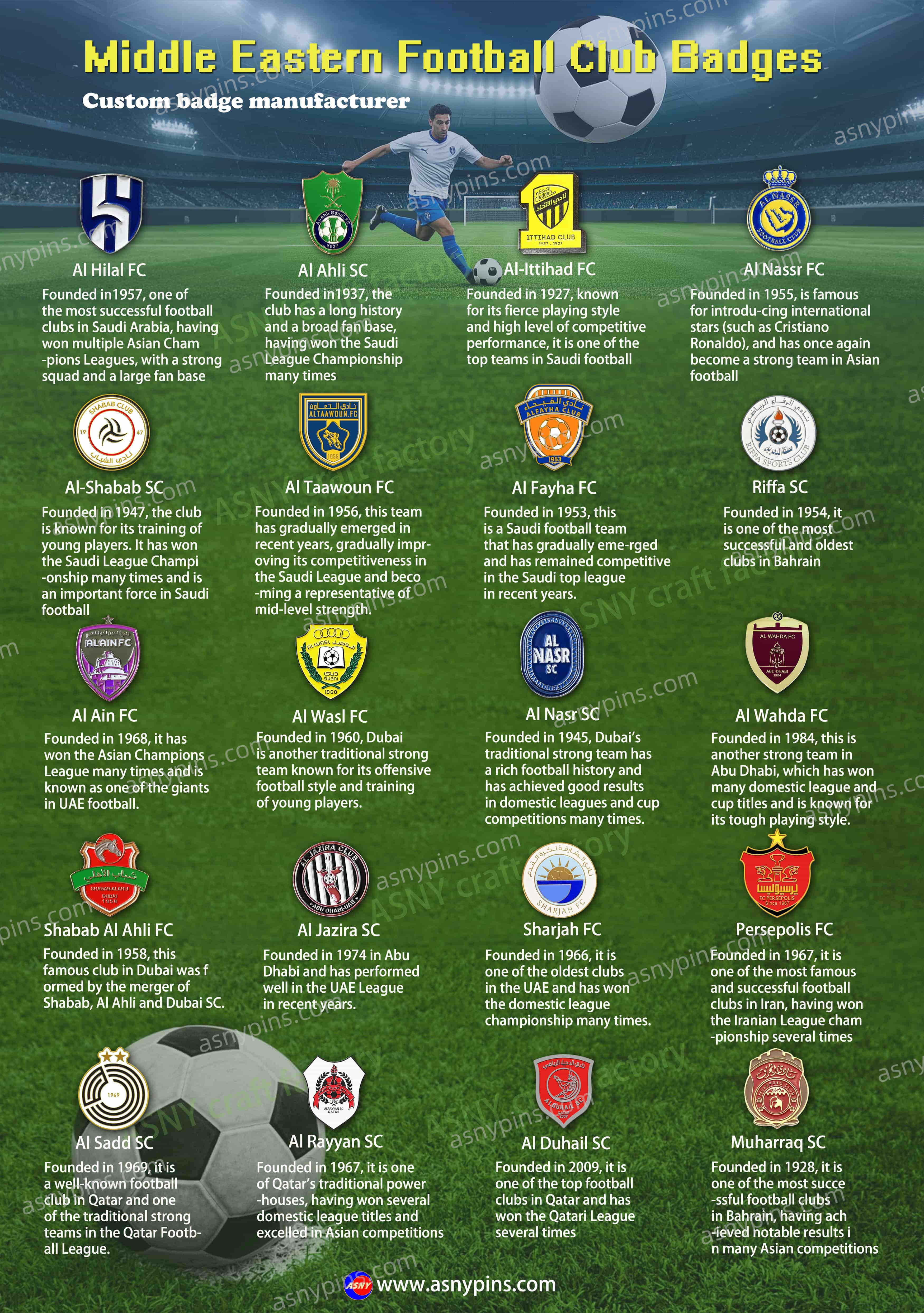
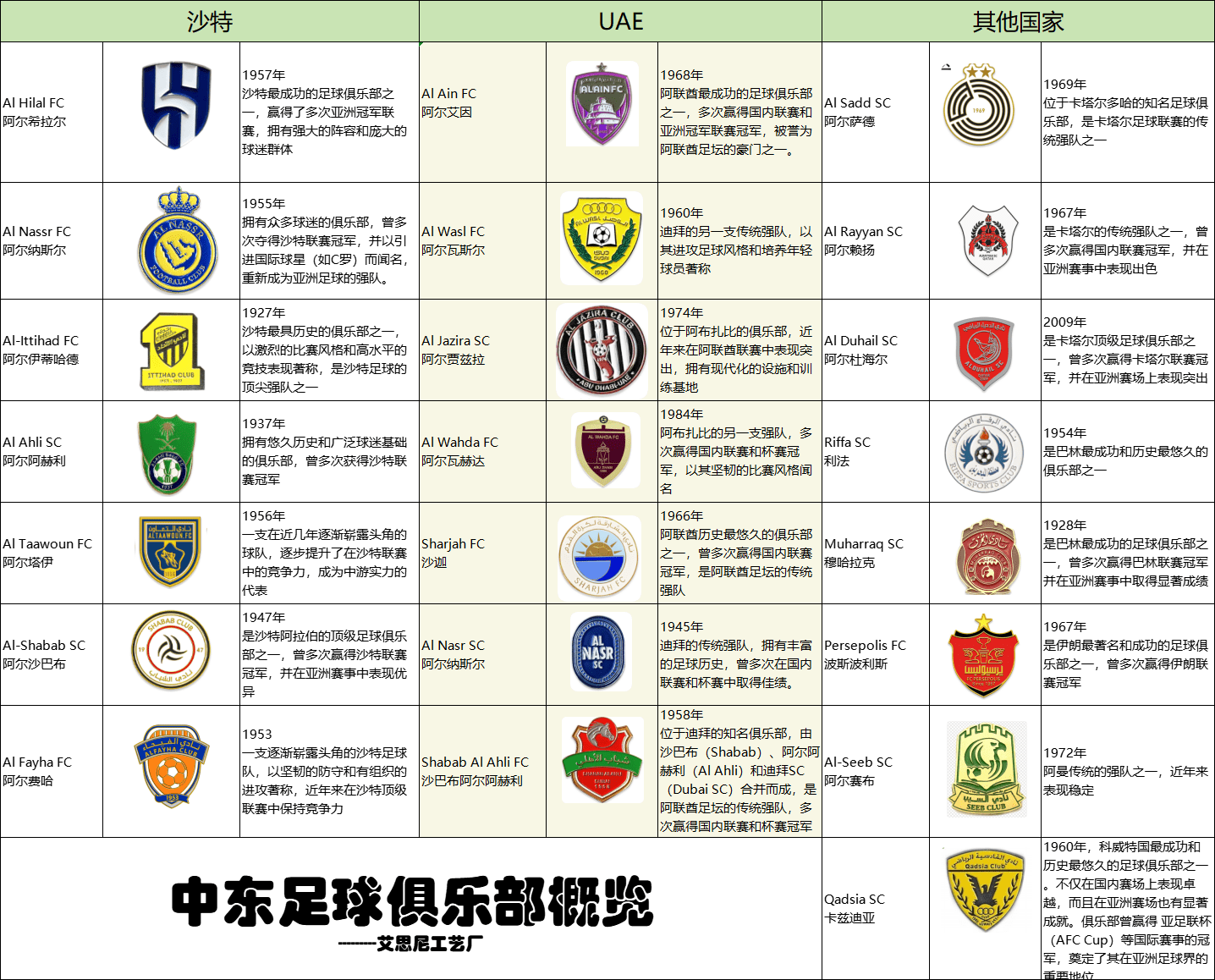
4. The Development of Middle Eastern Clubs
Over the past decade, football in the Middle East has risen rapidly, with clubs from Saudi Arabia, the UAE, and Qatar becoming more competitive on both the Asian and global stage. This transformation is driven by heavy investment, government-backed strategies, and major upgrades in football infrastructure.
- Commercialization & Professionalization of Leagues: The Saudi Pro League, UAE Pro League, and Qatar Stars League have undergone significant reforms to enhance club management, attract global investment, and bring in top-tier players.
- Government-Driven Sports Globalization: Initiatives like Saudi Arabia’s Vision 2030 have led to massive investments in sports, positioning football as a key part of national branding. This strategy has not only strengthened local leagues but also secured international event hosting rights, such as the 2022 FIFA World Cup in Qatar and Saudi Arabia’s successful bid for the 2034 World Cup.
- Infrastructure Development: Saudi Arabia, the UAE, and Qatar have built state-of-the-art stadiums, advanced training facilities, and improved broadcasting technology to enhance fan engagement and develop a complete football ecosystem.
5. Middle Eastern Clubs’ Performance in the AFC Champions League & Global Competitions
Middle Eastern clubs have become dominant forces in the AFC Champions League, frequently reaching the finals and winning titles over the past decade.
- AFC Champions League Achievements:
- Saudi Arabia: Al Hilal won the title in 2019 and 2021 and finished as runners-up in 2022, making them the most successful club in AFC Champions League history.
- Qatar: Al Sadd claimed the championship in 2011 and reached the FIFA Club World Cup semifinals that year.
- UAE: Al Ain became the first Emirati club to win the AFC Champions League in 2003 and reached the final again in 2016.
- FIFA Club World Cup Performances:
- In 2022, Al Hilal made history by reaching the FIFA Club World Cup final against Real Madrid, the best-ever performance by an Asian club.
- Clubs like Al Duhail (Qatar) and Al Jazira (UAE) have also delivered strong performances in the tournament, boosting the global recognition of Middle Eastern football.
6. Global Superstars & Elite Coaches in Middle Eastern Leagues
The Middle East is no longer just a secondary football market—it has become a top destination for the world’s best players and coaches.
- Superstar Signings: Cristiano Ronaldo (Al Nassr), Neymar (Al Hilal), Karim Benzema (Al Ittihad), and Sadio Mané (Al Nassr) are among the global icons who have joined the Saudi Pro League. These signings not only improve squad strength but also bring global media attention and inspire local talent.
- Top-Tier Coaches: European managerial talent, including former PSG coach Christophe Galtier and ex-Real Madrid manager Julen Lopetegui, has brought advanced tactical knowledge and experience to Middle Eastern clubs.
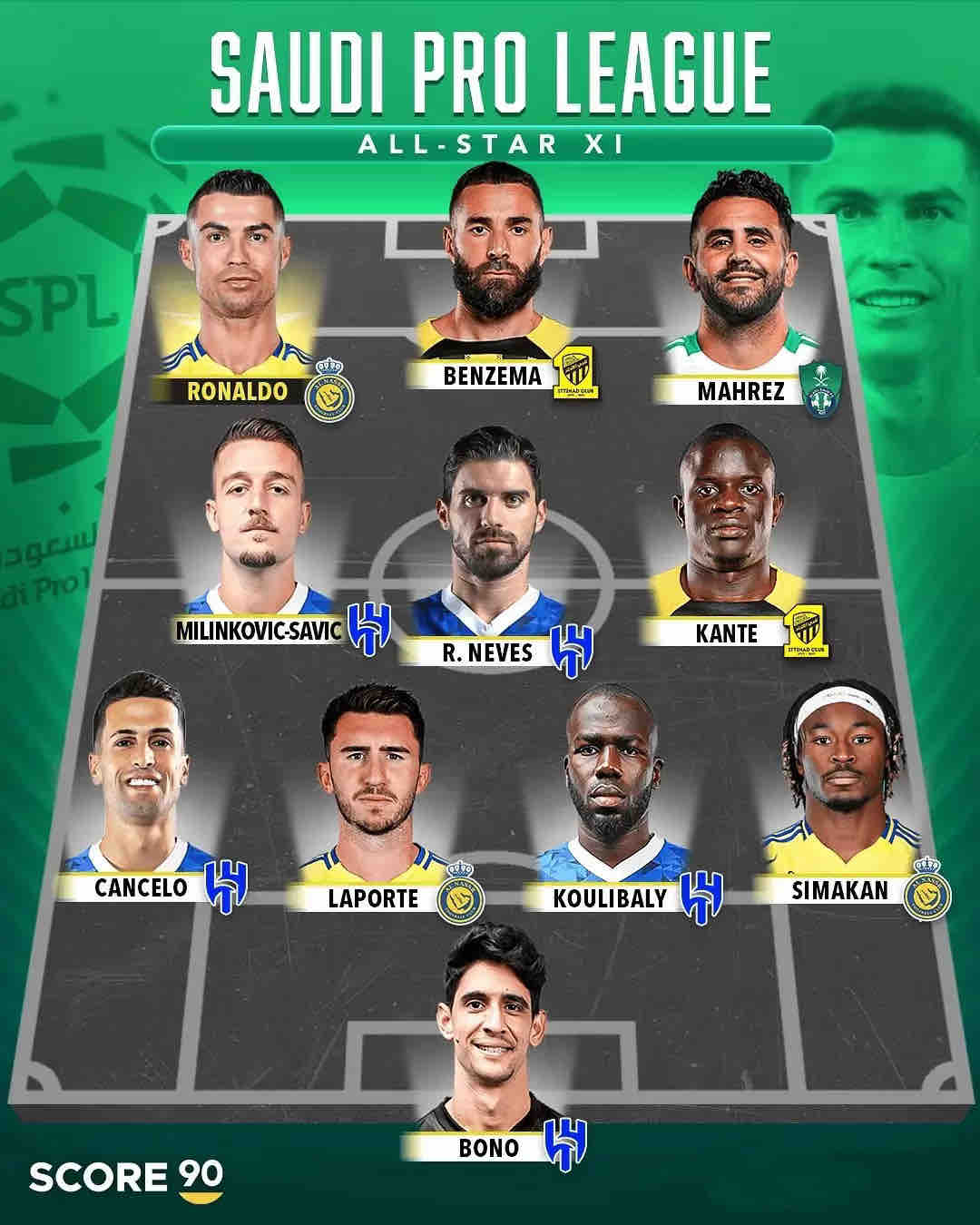
The rise of Middle Eastern football is no coincidence—it is the result of strategic investment, government backing, globalization, and increasing club competitiveness. As a result, the AFC Champions League and FIFA Club World Cup are becoming more intense, while the commercial value of Middle Eastern clubs continues to grow.
Custom Football Club Badges & Lapel Pin Souvenirs
7. Significance of Badges & Lapel Pins
7.1. Fan Culture & Brand Promotion
Football is more than just a sport—it’s a cultural phenomenon. Fans express their loyalty through badges and lapel pins, while clubs use these products to strengthen their brand identity. In the Middle East, football is deeply tied to national pride and community belonging. Wearing a club badge is not only a symbol of support but also a way for fans to connect with their community.
As Saudi, UAE, and other Middle Eastern clubs gain recognition in the AFC Champions League and FIFA Club World Cup, global interest continues to grow, directly boosting demand for related merchandise. Badges and lapel pins have become essential collectibles and key tools for club branding.
7.2. Craftsmanship & Precision in Club Badge Production
When creating custom football club badges, accurately replicating the official club logo is the top priority. Middle Eastern club logos often feature intricate patterns, Arabic typography, and unique color combinations, requiring advanced craftsmanship.
We utilize multiple manufacturing techniques to ensure precise detailing:
- Zinc Alloy Die-Casting: Provides a sturdy structure with sharp contours.
- Embossed Soft Enamel Coloring: Creates smooth, layered colors for a premium look.
- Offset Printing: Ideal for designs with gradient colors, ensuring seamless transitions.
- UV Printing: Ensures clarity in small fonts and complex logos.
By combining these techniques, we produce high-quality badges for clubs such as Al Hilal (Saudi Arabia), Al Nassr (Saudi Arabia), and Al Ain (UAE), meeting the market demand for premium club memorabilia.
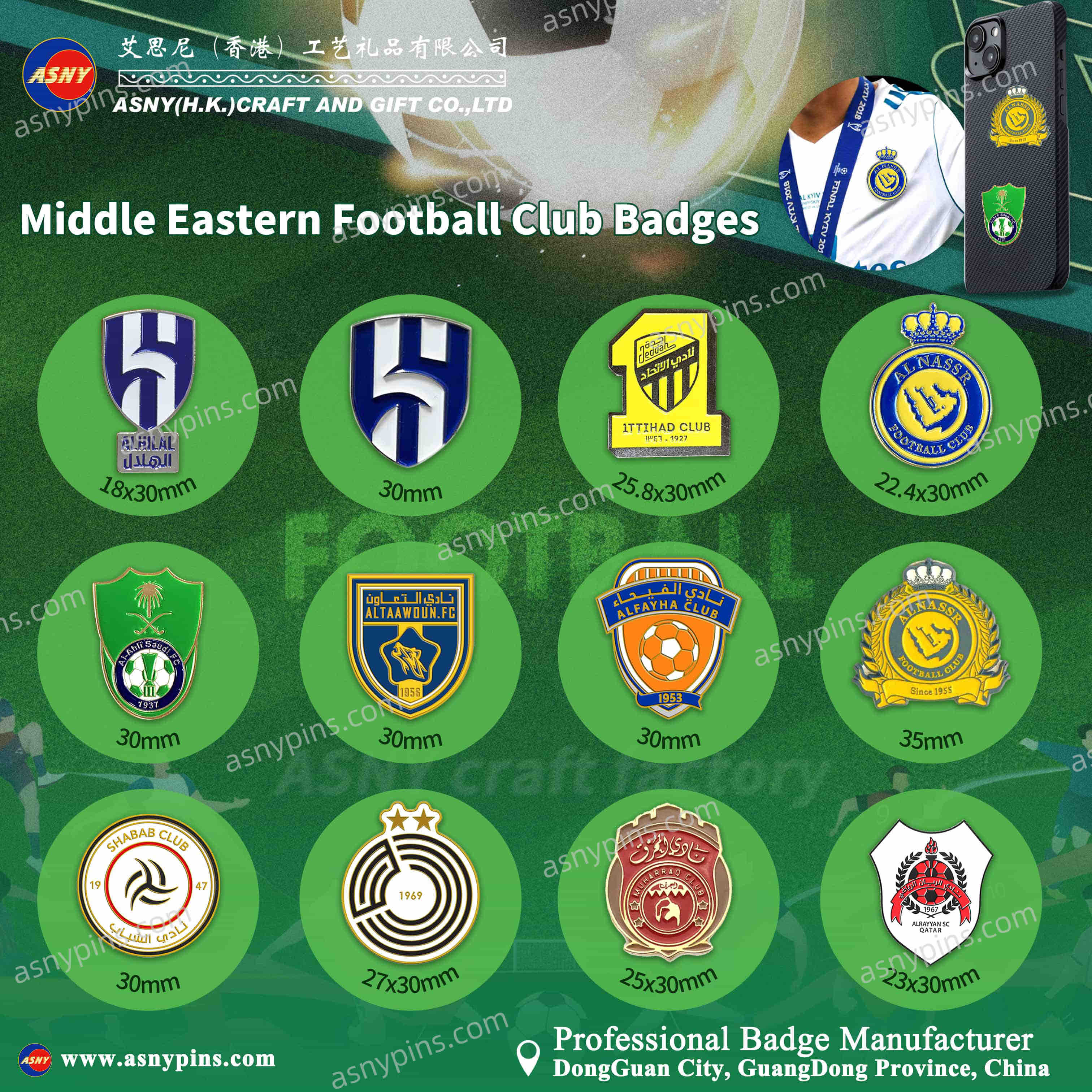
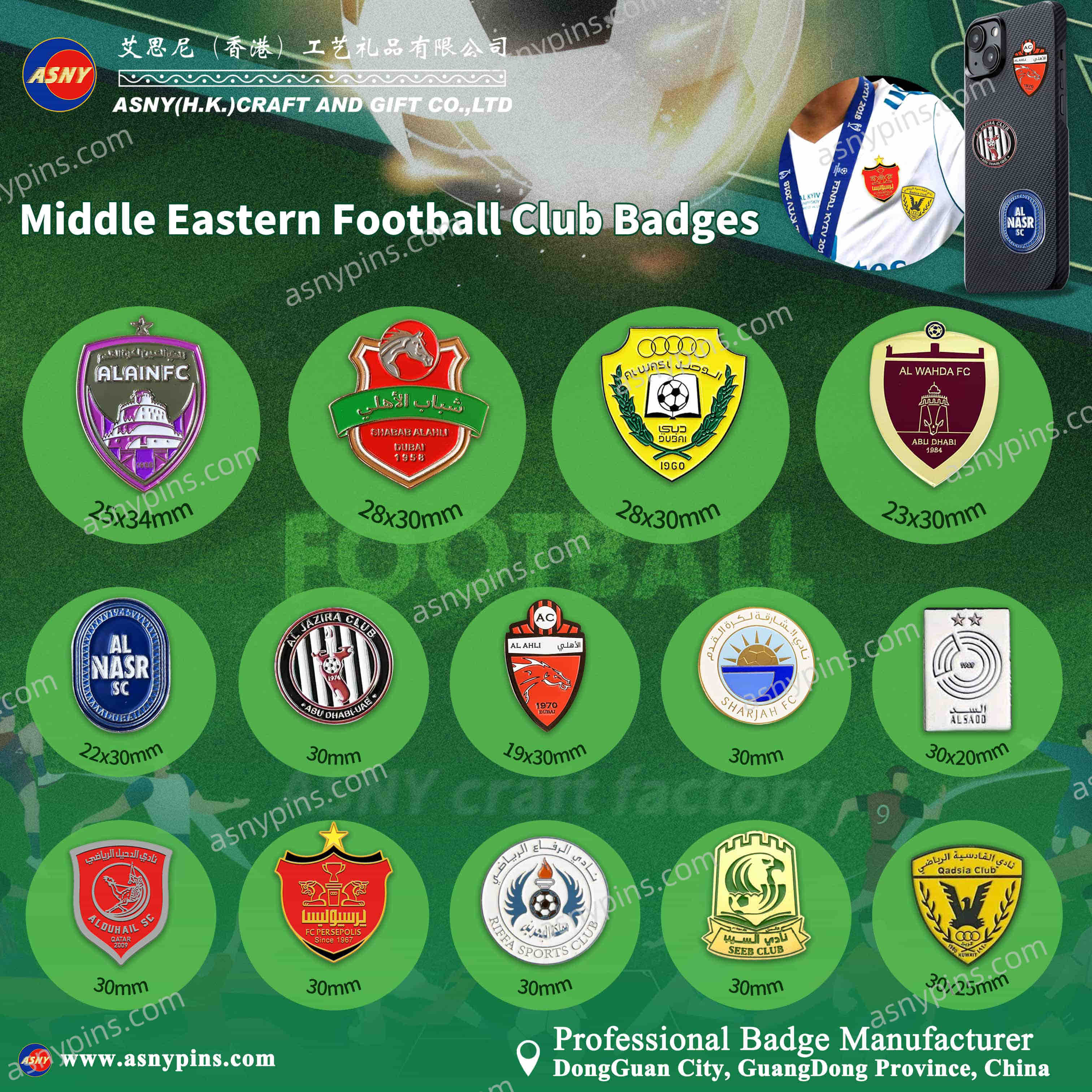
8. Custom & Wholesale Services
8.1. Factory Production Capabilities & Technical Advantages
As a professional badge manufacturer, we specialize in high-quality custom badges and lapel pins that align with official club branding. Our production process integrates advanced techniques to ensure precision and durability:
- Precision Molding: CNC engraving for sharp, refined edges that maintain logo integrity.
- Premium Plating Options: Gold, silver, antique bronze, black nickel, and more to enhance visual appeal.
- High-Precision Coloring: A variety of techniques, including Embossed Soft Enamel, Offset Printing, and UV Printing, to achieve accurate color representation.
- Durable & Eco-Friendly Materials: High-quality zinc alloy, copper, and stainless steel to ensure long-lasting wear and resistance to oxidation.
8.2. Product Types & Features
ASNY Craft Factory’s Middle Eastern football club badge and lapel pin collections include:
- Standard Badges: Official club merchandise for fan collections.
- Limited-Edition Commemorative Badges: Special releases for AFC Champions League and FIFA Club World Cup events.
- Player-Themed Badges: Custom designs featuring star players like Cristiano Ronaldo at Al Nassr.
- VIP Membership Badges: Premium designs for club members and sponsors.
8.3. Customization Process & Wholesale Services
- Requirement Confirmation: Clients provide official club badge designs or reference samples.
- Material & Process Selection: Choose from various materials, plating finishes, and coloring techniques.
- Sample Production: Ensure colors, dimensions, and details match official specifications.
- Mass Production: Implement strict quality control measures for bulk orders.
- Global Distribution: International wholesale and shipping services, catering to the Middle East and global markets.
We offer mold-free, cost-effective bulk badge production for Saudi Arabian, UAE, Qatari football clubs, and fan merchandise. Ready-made stock is available for direct purchase, with delivery typically within one week. Contact us for more details!
9. Market Demand & Future Trends
As Middle Eastern clubs gain global prominence, demand for official club merchandise is growing. Clubs are focusing more on brand-building, making official badges and memorabilia hot-selling items, especially limited-edition badges with high collectible value.
With the increasing exposure of the AFC Champions League & FIFA Club World Cup, the Middle Eastern club badge market is expected to expand further. Football fan culture is driving badge sales, and as football commercializes in the region, merchandise such as badges, jerseys, and keychains are becoming key revenue sources for clubs.
Conclusion
The AFC Champions League Elite (ACL Elite) has raised the competitive level of Asian club football through its new tournament structure. League rankings determine qualification, while top teams compete in the Swiss system for knockout stage spots. The eventual champion secures a place in the FIFA Club World Cup, facing off against the world’s best clubs. Middle Eastern teams, backed by strong investments, government support, and star player signings, continue to rise in prominence, solidifying their dominance in Asian football.
As a professional badge manufacturer, ASNY Craft Factory specializes in high-quality custom and wholesale football club badges for Saudi, UAE, and other Middle Eastern teams. Using Embossed Soft Enamel, Offset Printing, and UV Printing, we ensure every badge meets official club branding standards with precise detailing and premium craftsmanship. We also offer mold-free production, ready-stock availability, and fast delivery to meet market demands efficiently.
Looking ahead, as Middle Eastern clubs continue to make strides in the AFC Champions League and FIFA Club World Cup, their brand value will rise, and fan demand for official memorabilia will grow. High-quality custom badges will remain a key symbol of fan culture and a powerful tool for club branding and promotion.

